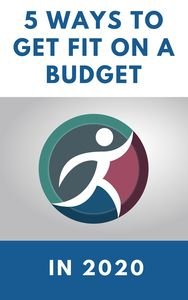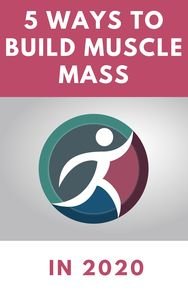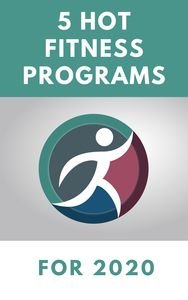Nutrition for Fitness
Losing weight usually begins in most people’s minds with them figuring out when and where to start exercising and being more active. In reality, the first place they should be looking is in the kitchen
It’s this room of the house that will determine your progress when it comes to achieving your most pressing fitness goals of losing weight. For some people, exercising alone will do next to nothing when it comes to seeing results on the scale, if their diet is very poor.
A few others could get away with a little bit of progress if they have better nutrition. Even those who saw a little bit of progress just from added exercise, will eventually realize that sooner or later they will have to change what they eat and drink if they want to continue making progress.
There are many approaches - both extreme and easier methods - to adapt healthier eating habits. Before even beginning any exercise, this could be a great place to start when you begin to map out your weight loss and fitness goals.
A few important factors must be considered when creating a game plan for a new healthy lifestyle - such as your budget, mindset, support system, and body goals. Once you have closely looked at each of these four areas, you will have a better understanding of where you should begin to take your first step into a healthy lifestyle.
Keep in mind that your nutrition doesn’t just come into play when you’re talking about whittling your waist. It’s also fuel for the right kinds of workouts, so even if you’re at or close to your weight goal, you still need to be armed with the right nutritional advice to help you power through your workouts.
Nutrition for Lack of Control
Obesity is an ever-growing epidemic around the world, along with the disease and health implications that follow, and many of these cases can be chalked up to very little self-discipline.
Willpower is one of the most important aspects of achieving the body you want. Unfortunately, it’s also what most people blame whenever they fail to accomplish their goals.
There are occasions where weight gain is situational - such as hormones, stress, medical conditions and medications. However, even these factors can be reduced with effort.
Trying to begin a diet or healthy habits can be a challenge to anyone with little control over moods or cravings towards foods, so it’s important to start small, and begin training your mindset.
A great place to start is to throw out or hide larger sized plates, cups, and bowls, and replace them with smaller to moderate sized plates so that you can still fill them up with whatever you’d like.
Plates used to be 8-9 inches, and now, consumers purchase enormous plates that rival the large dinner portions found in restaurants. These portions are actually not single sized, but enough food for 3-4 people.
This approach slowly teaches us portion control, and this process can still take a few weeks to get used to. While adjusting to slightly smaller portions, put some time off to the side daily - even ten minutes - to consider your goals, barriers and solutions for any situation you might face down the road.
Listen or read motivating and uplifting encouragement over and over, ten minutes a day every day. These two tasks will get your body adjusted to smaller portions, and continue to train your brain’s all without zapping too much of your day worrying about what to eat, when to eat, how much to eat, and all of the other factors that stress many people out, causing them to quit their diet after only a couple of days.
The idea here is to start slow and build momentum, because when momentum is built, it’s very difficult to stop. Once you have adjusted to smaller portions and have a healthier mindset than you used to, it’s time to add an extra step or two.
Maybe you choose drinking more water and walking for 30 minutes a day as your two additional steps. The power of a bunch of smaller tasks being completed will quickly stack up over the course of a few months.
Then you will be easily implementing healthier habits whereas others will try to everything all at once in a couple of days, causing them stress and defeat. Take your health journey one day at a time.
Stay committed to yourself, and focus on what happened today and what’s to come tomorrow, rather than sizing up a whole year and before you know it you will be unstoppable.
Nutrition for the Dedicated
Having the mental capacity to stick to a strict nutrition plan can greatly increase the speed at which you see results in your fitness progress. If this is your cup of tea, that’s great!
Now it’s just about finding where to begin and what steps to take to get you there. First, you have to realize exactly how many calories that you need to consume to gain or lose weight - depending on your goal.
To do this, there are many caloric intake calculators online for use free. However, there are some tests such as the Resting Metabolic Assessment that can be performed by professionals to find out specifically how many calories are required for your individual lifestyle.
Once you know exactly how many calories you should consume on a daily basis, it’s time to begin planning out how you would like to consume those calories. The calories for weight gain or loss will also be different, because you need to be at a 500 caloric surplus to gain lean muscle, while you need to be at a 500 caloric deficit to lose body fat.
If your goal is to just gain lean muscle mass, you will need to have a higher protein diet, and consume both carbs and protein before bed to help with recovery of muscle tissue after hard workouts.
However, if your goal is to lose weight, it is best to consume carbohydrates in the morning, eating a dinner mostly comprised of lean proteins and vegetables. Tracking calories is also crucial to sticking to a strict regimen for optimal results.
Tracking tools can be downloaded through apps on your phone, by using Excel spreadsheets or simply with a pen and paper. Whatever is going to help you remember to keep track of how many calories you consume for the day in the easiest and best way should be the method you pick.
If, at any point during your nutrition progress, you begin to fall off your program, seek professional help with an online or in person nutrition specialist or registered dietitian. These resources will help you stay on track and keep you accountable to your goals.
Staying accountable to goals can also be much easier with the help of meal prepping your calories out beforehand. Meal prepping, if done right, can take a matter of 30 minutes and you can prepare all of your lunches or dinners for the entire week - making it easier on you to keep track of your daily intake.
Planning your nutrition journey out thoroughly before even starting is the key to overcoming obstacles and barriers to ensure you have a plan to keep yourself accountable, too.
Supplementation and Nutrition
In a culture focused on fixing problems quickly and easier, billions of dollars are generated from the supplementation industry. What many people have a hard time understanding is that “supplementation” is simply meant to replace the missing gaps in your established nutrition plan – not replace food completely.
More of your dollars should be spent on wholesome foods rather than tubs of powder and bottles of vitamins. Having a better diet can go a longer way towards your health than a poorly regulated quick fix industry.
Not all vitamins and powdered supplements are bad, but many people spend too much money for the little benefits, if any, that they receive from supplementing. A great place to start when deciding which supplements to invest in is to look at what your current needs are.
Tracking your basic calories and macronutrients such as proteins, carbohydrates, and fats are a great way to figure out if there are any extra protein needs you might have. A good rule of thumb is to eat the number in grams of protein for every pound of your ideal bodyweight.
If your goal is to weigh 150, then try aiming for a daily intake of 150 grams of protein daily. It’s optimal to eat your protein if possible, but if eating 150 grams of protein is difficult to achieve, then supplementing with a protein powder is a great way to sneak in extra protein calories.
There are also symptom quizzes online that you can take to give you a better recommendation of whatever supplements are on the market to improve the way that you feel – or, better yet - a physician can make professional recommendations based on findings in your bloodwork.
Typically, the bulk of any supplements you may need will include a multivitamin, fish oils, and possibly a protein. Keeping costs low on supplements will allow you to budget for more important factors such as wholesome foods and exercise expenses such as home equipment or a gym membership.
Make sure that whatever supplements you do decide to invest in, they’re third party tested for purity, and be sure to look into the company reviews to make sure that the supplements come from a reputable source.
Habits, Not Quick Fixes
A much healthier way to ensure that you lose the weight and the weight stays off is to focus your energy on building small, healthy diet habits. There are an abundance of companies promoting quick weight loss in a matter of weeks.
However, many of them fail their consumers for a couple of reasons. First, a majority of people shopping for diet pills, promising fast weight loss programs and other lucrative advertisements are not mentally strong enough to maintain that regimen on their own.
Some of these products and services can be very taxing on your mental health, stress levels, and they can easily be compromised - which will cause a sense of defeat. Keto diets are a great example of these extreme programs that a majority of people start off strong with, but end up failing within a matter of a few weeks to months.
The second problem with promising programs is that they may actually work in the short term - but in the end, the consumer didn’t learn how to maintain that progress on their own.
Jenny Craig, Weight Watchers, and other programs are great at getting people to their results by limiting caloric intake, and creating nutrition plans for them. Shortly after the goal has been reached, or the program has been completed, a lot of people end up going back to their old nutrition ways, then gaining back the lost weight.
The idea of quick weight-loss is tempting enough to keep people coming back to these programs over and over again – even after consistent regain of the weight, causing you to spend thousands of dollars just to be stuck in a yo-yo effect.
Yo-yo dieting is the process of starting and completing nutrition programs, to only regain the weight, causing your body to be unable to maintain homeostasis and wreaking havoc on your metabolism.
Yo Yo dieting doesn’t just affect your metabolism. New research shows that the process can contribute to an early death because of the damage it does to your entire body, in addition to your mind.
Save yourself from being stuck in this cycle, and take nutrition slowly one day at a time so that you can stay fit and healthy long term. Regardless of your dietary needs, coming up with a solid game-plan that will work best for you, and planning out any obstacles that lay ahead will give you a much better chance at staying successful with your fitness and weight goals.
Prepare for your nutrition journey to be more of a long term lifestyle change, rather than a three-month quick fix. The progress may take twice as long to complete, but in the end, you won’t spend years going back and forth between quick weight loss schemes.
You’ll simply lose the weight, achieve your fitness goals and be able to effortlessly maintain the body you’ve worked hard to achieve over time. If you thought about it consciously, chances are you’d choose long-term, permanent fitness rather than a quick fix that evaporates after only a few months.







